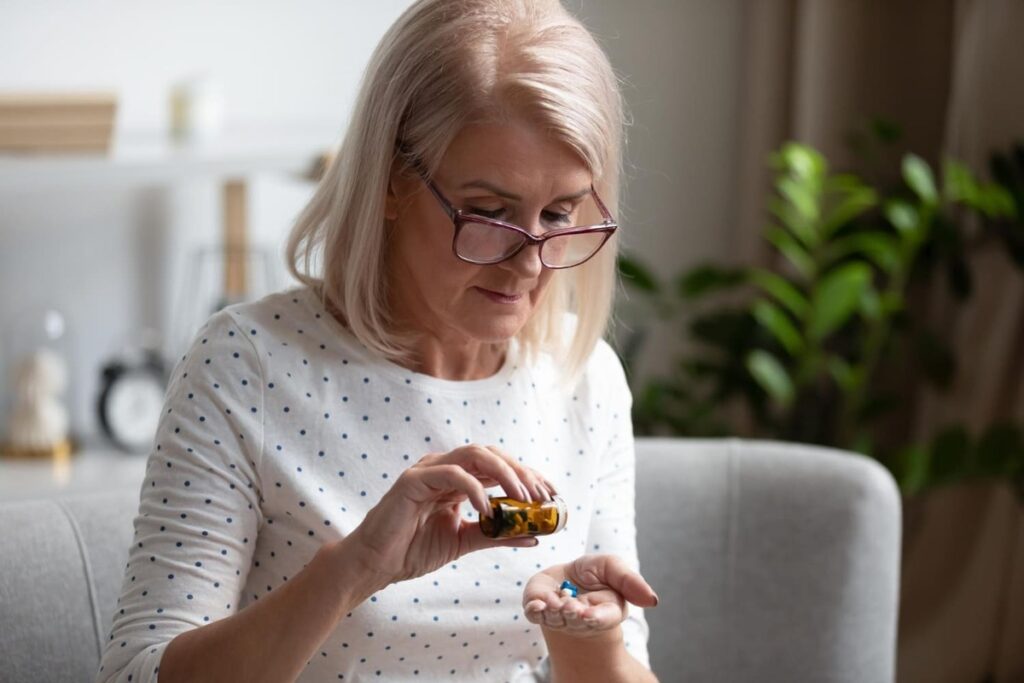10 Mental Health Myths Women Over 40 Need to Stop Believing
Mental health is often misunderstood, especially when it comes to women over 40. You might have heard a lot of common ideas that don’t quite match the reality of how mental health works as you age. These myths can make it harder to recognize what you’re truly experiencing or to seek the right kind of help.
Understanding the facts about mental health after 40 can help you take better care of yourself and challenge the false beliefs that hold you back. It’s important to separate what’s true from what’s just a misconception so you can approach your mental well-being with confidence and clarity.
Mental health issues are a sign of weakness

You might have heard people say that struggling with your mental health means you’re weak. That’s not true. Mental health challenges are not about strength or character flaws.
Your brain chemistry, genetics, and life experiences all play a role in how you feel. Just like you wouldn’t think someone with the flu is weak, it’s unfair to judge mental health struggles the same way.
Admitting you need help and reaching out takes courage. It shows you understand the importance of taking care of yourself. Weakness isn’t a factor here—getting support is a smart and strong move.
If you’re dealing with anxiety, depression, or other issues, remember this isn’t a reflection of who you are as a person. It’s a health condition, and it doesn’t define your value or strength.
Women are the only ones who struggle with mental health

It’s a common myth that mental health struggles only affect women. But the truth is, people of all genders face mental health challenges. Men, women, and non-binary individuals can experience anxiety, depression, and other issues.
You might notice that women talk about mental health more openly. This doesn’t mean men don’t struggle; sometimes they just face different social pressures around expressing emotions.
Your own experience matters, regardless of gender. Mental health is personal and varies widely. Don’t let stereotypes stop you from seeking help or supporting others.
Remember, mental health isn’t about who struggles more. It’s about recognizing that anyone can need support at any time.
Therapy means you’re crazy or broken

You might think that going to therapy means something is seriously wrong with you. That’s a common myth, but it’s simply not true. Therapy is a tool for anyone who wants support, growth, or a fresh perspective, not just people with major problems.
Seeking therapy shows strength and self-awareness. It means you’re taking steps to understand yourself better and handle life’s challenges in a healthier way. You’re not broken or weak—you’re proactive.
Therapy can help with everyday stress, relationship troubles, or just feeling stuck. It’s like having a coach for your mind. Talking to a professional is different from chatting with friends because therapists offer guidance based on training and experience.
Everyone’s mental health is important, no matter your age. If you’re a woman over 40, therapy can be a space to explore new goals, navigate changes, and build resilience. Don’t let the stigma stop you from getting the help you deserve.
Mental health problems are just hormonal mood swings

It’s easy to think that mental health issues after 40 are just hormone-related mood swings. While hormones can affect your emotions, mental health problems are often more complex than that.
Hormonal changes, like those during menopause, can cause mood shifts. But anxiety, depression, or other conditions aren’t simply because of your hormones. They involve brain chemistry, life stress, and other factors too.
If you’re experiencing persistent symptoms, don’t brush them off as just “hormones.” Getting support from a mental health professional can help you figure out what’s really going on.
Your mental health is important, no matter what your hormone levels are. Taking care of yourself means looking beyond hormones and addressing the whole picture.
You can just ‘snap out of’ depression or anxiety

It’s not as simple as telling yourself to feel better. Depression and anxiety aren’t mood swings you can easily control or shake off. They involve real changes in your brain chemistry and how your body works.
When you’re dealing with these conditions, you might notice changes in sleep, appetite, or energy that don’t go away on their own. It’s normal to want to snap out of it, but these feelings often need proper care and attention.
Treatment could include therapy, medication, or lifestyle adjustments. The key is understanding that recovery takes time, and it’s not about willpower alone. If you or someone you know is struggling, seeking support is a strong and necessary step.
Talking about mental health makes things worse

You might think that bringing up mental health issues will only add stress or make problems bigger. But in reality, talking about how you feel can actually help a lot. When you share your thoughts and emotions, it takes away some of the weight you might feel inside.
Opening up can help you understand your feelings better. It also gives others a chance to support you or point you toward useful resources. Avoiding the topic doesn’t fix anything; it often makes it harder for you to get the help you need.
Some people worry that talking about mental health could “put ideas” in someone’s head or trigger bad thoughts. This fear is common but not based on fact. Honest conversations make mental health less intimidating and more manageable.
So, don’t hesitate to speak out or listen. Sharing your experience is a way to break down the stigma and create a space where seeking help feels okay—and even normal.
Seeking help is a sign of failure

You might think asking for help means you haven’t got it all together. That’s a common belief, but it simply isn’t true. Getting support shows you know your limits and want to take care of yourself.
Mental health challenges don’t reflect your strength or abilities. Everyone goes through tough times, and reaching out to someone—whether a friend, doctor, or therapist—is a smart move.
Ignoring the need for help can make things harder in the long run. When you ask for support early, you give yourself a better chance to feel better and stay healthy.
It’s okay to admit you don’t have all the answers. Accepting help is about being proactive, not failing. You deserve to feel good, no matter your age or stage in life.
Mental illness is caused by personal choices

You might think mental illness is something you can control by simply making better choices. But that’s not how it works. Mental health conditions are not just about what you decide to do or how strong you are.
Mental illness can stem from a mix of genetic, biological, and environmental factors. Stressful life situations or traumatic events can increase the chances, and sometimes your brain chemistry plays a role too.
It’s important to know that having a mental health condition doesn’t mean you are weak or flawed. You didn’t cause it by “failing” to handle things well. It’s similar to how you wouldn’t blame someone for catching a cold or developing diabetes.
So, if you’re struggling, don’t beat yourself up for something that’s beyond your personal choices. Getting support and care is what really makes a difference, not guilt or self-blame.
Medication is the only solution for mental health issues

You might think medication is the only way to handle mental health problems, but that’s not true. Medication can help manage symptoms, but it’s usually part of a bigger plan.
Therapy, lifestyle changes, and support from friends or family are important too. Things like exercise, good sleep, and stress management can make a real difference in how you feel.
Sometimes, medication is necessary to provide relief, especially in more severe cases. But relying on meds alone isn’t always enough. You want a balanced approach that fits your unique situation.
Remember, mental health care is personal. What works for someone else might not be the best for you. Talk openly with your doctor about all your options before deciding on treatment.
Taking meds doesn’t mean you’re weak or broken. It just means you’re using tools available to support your recovery. Your mental health journey can include multiple strategies, not just medication.
Mental health issues always show obvious signs

You might think mental health problems are easy to spot, but that’s not always true. Sometimes, issues hide behind everyday behaviors like feeling tired, having headaches, or just not enjoying things as much as before.
Not every struggle comes with clear signs. You could feel worn down or stressed without realizing it’s part of a deeper problem. Mental health can be complicated and doesn’t always scream for attention.
Also, many women over 40 juggle lots of roles and responsibilities, so it’s easy to brush off symptoms as just “part of life.” But if you notice ongoing changes in your mood or energy, it’s worth taking seriously—even if nothing seems obvious to others.
Remember, mental health isn’t always visible. Trust how you feel, even when no one else notices anything unusual. Getting support doesn’t mean something has to look dramatic; it’s about taking care of your well-being, quietly and steadily.







